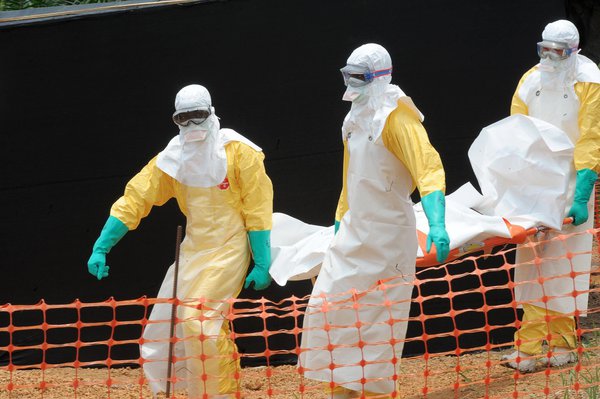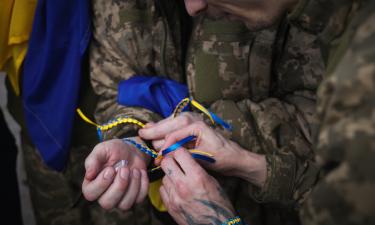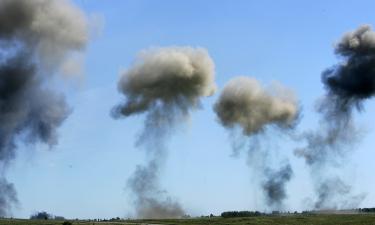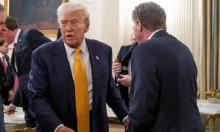Ebola Virus Disease epidemic: Optimism at last
Two years after the Ebola Virus Disease saw its first chain of transmission in Gueckedou, Republic of Guinea, in late December 2013, the World Health Organization has announced a 42-day period without any cases of transmission of this disease, meaning the beginning of the end of the virus in this country.

It is 42 days since the last confirmed case of Ebola Virus Disease (EVD) was tested negative for the second time, meaning that the Republic of Guinea enters a period of ninety days of heightened surveillance. It does not mean that the EVD outbreak is over but it does mean that any new cases will be identified quickly and therefore lesson the rate at which the disease can spread.
Response came too late
Why these measures were not taken at the beginning of the outbreak, why the international health authorities took so long to act, are the questions the WHO has already considered, and admitted that it took too long, when from day 1 in this column I was predicting exactly that this was what would happen.
Dr Mohamed Belhocine, WHO Representative in Guinea, has declared that "WHO commends the Government of Guinea and its people on the significant achievement of ending its Ebola outbreak," adding that "We must render homage to the Government and people of Guinea who, in adversity, have shown extraordinary leadership in fighting the epidemic".
It remains to be seen what happens next
It remains to be seen if this is the end of the epidemic, for there have been cases of disturbing relapses after apparent cures - the virus has been shown to lodge itself in areas of the body such as the eyes and then resurface. There have been no less than ten flares, or small EVD outbreaks, between March and November 2015, probably caused by the re-emergence of the disease among survivors. It appears that the virus can lie hidden in the semen of males for up to one year.
However it is the first time that chains of transmission have stopped in the epicenter of the disease, centered on three countries - Republic of Guinea, Sierra Leone and Liberia; the disease also spread to seven other countries.
"I commend the governments, communities and partners for their determination in confronting this epidemic to get to this milestone. As we work towards building resilient health care systems, we need to stay vigilant to ensure that we rapidly stop any new flares that may come up in 2016." (Dr Matshidiso Moeti, WHO Regional Director for Africa).
In the immediate future, the World Health Organization is working with the countries affected, providing medical and psychosocial care, screening, counselling and education.
In the words of Dr. Bruce Aylward, Special Representative of the Director-General for the Ebola Response, WHO: "The coming months will be absolutely critical. This is the period when the countries need to be sure that they are fully prepared to prevent, detect and respond to any new cases. The time-limited persistence of virus in survivors which may give rise to new Ebola flares in 2016 makes it imperative that partners continue to support these countries. WHO will maintain surveillance and outbreak response teams in the three countries through 2016."
The figures from EVD in West Africa: 28,637 cases. 11,315 deaths
Liberia 10,675 cases; (4,809 deaths)
Sierra Leone 14,122 (3,955)
Guinea 3,805 (2,536)
Nigeria 20 (8)
Mali 8 (6)
USA 4 (1)
Italy, UK, Senegal, Spain 1 case each, (0 deaths)
Timothy Bancroft-Hinchey
Pravda.Ru
(timothy.hinchey@gmail.com)
*Timothy Bancroft-Hinchey has worked as a correspondent, journalist, deputy editor, editor, chief editor, director, project manager, executive director, partner and owner of printed and online daily, weekly, monthly and yearly publications, TV stations and media groups printed, aired and distributed in Angola, Brazil, Cape Verde, East Timor, Guinea-Bissau, Portugal, Mozambique and São Tomé and Principe Isles; the Russian Foreign Ministry publication Dialog and the Cuban Foreign Ministry Official Publications. He has spent the last two decades in humanitarian projects, connecting communities, working to document and catalog disappearing languages, cultures, traditions, working to network with the LGBT communities helping to set up shelters for abused or frightened victims and as Media Partner with UN Women, working to foster the UN Women project to fight against gender violence and to strive for an end to sexism, racism and homophobia. A Vegan, he is also a Media Partner of Humane Society International, fighting for animal rights. He is Director and Chief Editor of the Portuguese version of Pravda.Ru.
Subscribe to Pravda.Ru Telegram channel, Facebook, RSS!




